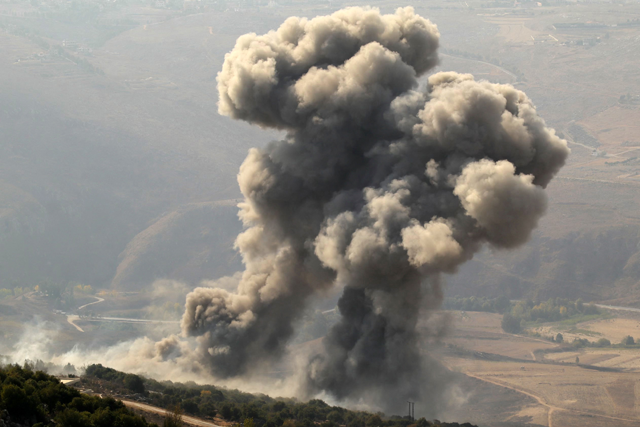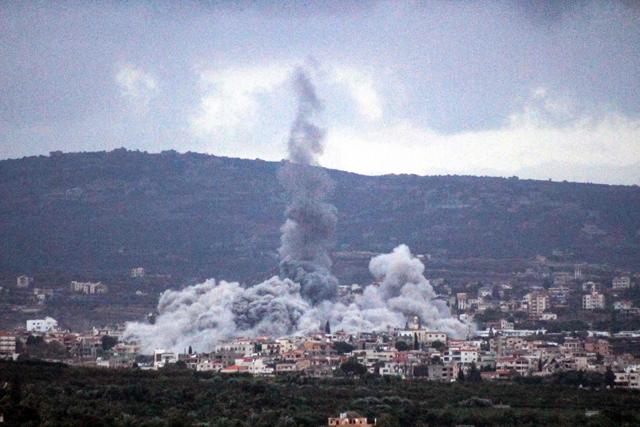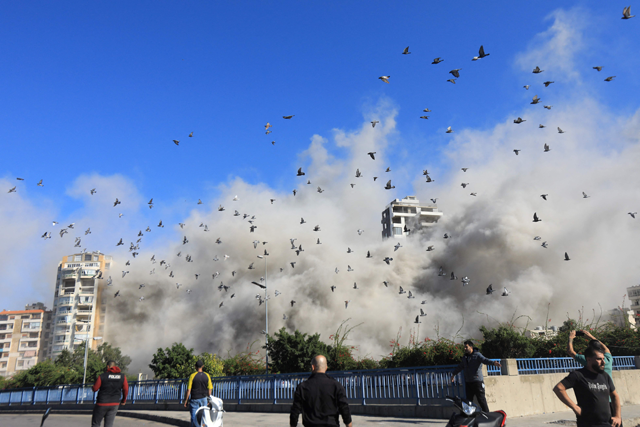TEHRAN — Iran's supreme leader on Saturday vowed retaliation for attacks by Israel and its US ally, as a pro-Iran coalition in Iraq claimed a drone strike on the Israeli resort of Eilat.
The Islamic Resistance in Iraq is among pro-Iran groups drawn into more than a year of war between Israel and Hamas in Gaza and Hizbollah in Lebanon.
Days before the presidential election in Israel's main military supplier the United States, Ayatollah Ali Khamenei said Iran's response would cover attacks on both the Islamic republic and its allies.
Israel's military said it intercepted three drones over the Red Sea, after late Friday reporting seven drones launched from "several fronts". The Islamic Resistance in Iraq claimed responsibility for four drone strikes on Eilat.
Since late September Israel has been engaged in full-scale war against Iran-backed Hizbollah in Lebanon while fighting continues against Hamas, which triggered the Gaza war by attacking Israel on October 7 last year.
On Saturday, Israel again carried out deadly air strikes on north Gaza, where the UN calls conditions "apocalyptic", and Hizbollah intensified rocket fire around Israel's commercial hub of Tel Aviv.
"The enemies, both the USA and the Zionist regime, should know that they will definitely receive a tooth-breaking response," Khamenei said, referring to Iran-aligned groups including those in Yemen and Syria.
On October 26, Israel bombed military sites in Iran, killing four servicemen, in response to an October 1 barrage of about 200 missiles that Tehran called a reprisal.
Israel has warned Iran against responding to the October 26 attack.
B-52 bombers
Analysts say Israel inflicted severe damage on Iranian air defences and missile capacities and could yet launch more wide-scale action against the Islamic republic.
Yemen's Iran-backed Huthi rebels, who have repeatedly attacked commercial shipping in the Red Sea, are transforming themselves into a "powerful military organisation" due to "unprecedented" military support from outside sources, particularly Iran and Hizbollah, a UN report said.
Ahead of the US election on Tuesday, American officials have been pushing for a resolution of the Lebanon war.
On Friday, the Pentagon announced deployment of ballistic missile defence destroyers, long-range B-52 bombers and other resources to the Middle East, serving as a warning to Iran.
The capabilities would begin arriving "in coming months", a Pentagon spokesman said.
US naval forces and heavy B-2 bombers have struck Huthi rebel targets in Yemen in response to the attacks by the rebels.
Since October 6, Israeli forces have carried out a major air and ground assault in north Gaza, centred on the Jabalia area, vowing to stop Hamas from regrouping.
"The situation unfolding in north Gaza is apocalyptic," said a joint statement by UN agency chiefs. They described the area as "under siege" and "denied basic aid and life-saving supplies".
In the Gaza City area, medics administered polio vaccines to children after the World Health Organization said the necessary second round would begin in the territory's north on Saturday. Israeli bombing had halted the drive.
Witnesses said Israeli warplanes twice hit Beit Lahia, adjacent to Jabalia, overnight.
Deaths in Gaza
Israel's military said dozens of militants were killed around Jabalia "in aerial and ground activity".
Troops were also operating in central Gaza and in Rafah in the south, it added.
Medics and Gaza's civil defence agency reported three people killed in a strike on Nuseirat, in central Gaza.
"At 1:00 am, there was an explosion and the screaming started. We came out and there were planes and gunfire above us," said Ashraf Abdullah, describing the victims as "all torn to pieces."
After nearly a year of tit-for-tat exchanges across Israel's northern border, Israel escalated its bombing campaign against Hezbollah targets in Lebanon on September 23 and later sent in ground troops.
Hizbollah has since fired more deeply into Israel.
A strike in the coastal plain north of Tel Aviv wounded 19 people, four of them moderately, police said on Saturday, after the army reported three projectiles fired from Lebanon into central Israel.
Israel's military says 37 soldiers have been killed in Lebanon since it began ground operations, and Israeli figures show at least 63 people have been killed on the Israeli side of the border over the past year.
Hizbollah said it had again launched rockets at Israel's Glilot intelligence base near Tel Aviv, and also claimed rocket fire against "military industries" in the Haifa area.
AFP images from Tira, northeast of Tel Aviv, showed the upper wall blown out in what appeared to be a residential building. Several cars below were crushed.
Since the war escalated, Israeli strikes have killed at least 1,911 people in Lebanon, according to an AFP tally of health ministry figures.
Israeli strikes against Hizbollah's south Beirut stronghold on Saturday killed one person and wounded 15, the health ministry said.
The war has displaced hundreds of thousands of people in Lebanon.
"There's no heating. We don't have warm clothes," said Fatima, 17, who now camps out with her family at a school near Deir al-Ahmar, in Lebanon's eastern Baalbek area.
Israel's military campaign has killed 43,314 people in Gaza, most of them civilians, according to figures from the Hamas-run territory's health ministry which the UN considers reliable.



















